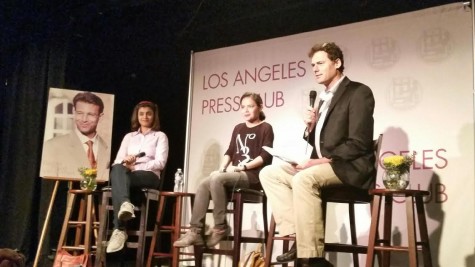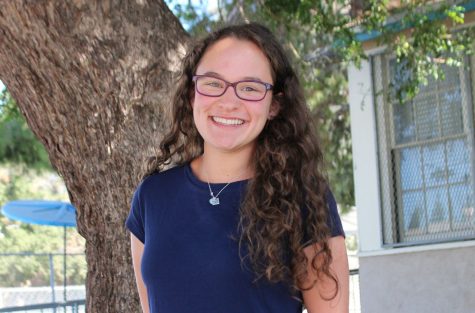Pakistani journalists share their experiences while visiting America
August 21, 2015

As their six-month journey came to an end, Saher Baloch and Arooj Zahra recently shared their experiences with journalism in America at the Los Angeles Press Club.
“We work in a very conflicted environment,” said Baloch, during the Aug. 13 Conversation with 2015 Daniel Pearl Fellows forum.
Every year, the Daniel Pearl Foundation and Alfred Friendly Press Partners sponsor journalists from 80 countries to come to America and learn about reporting here. Fellows, as the journalists are called, attend various workshops about writing and editing. After their seminars, the journalists are able to intern at various publications, such as the Los Angeles Times, the Washington Post and the Jewish Journal.
Baloch and Zahra are from Pakistan and said they have to report on issues very carefully. The language a reporter writes in is also a factor that determines how careful a publication has to be. For the most part, their editors are open-minded but they travel to work in bullet-proof cars and there is security at every entrance.
“I’m afraid that the Afghan Taliban will make a comeback,” said Zahra while addressing post-American Pakistan.
It is important to know that there are two different Talibans: the Afghan and Pakistani. The Afghan Taliban is anti-American and very powerful. This is an issue because the Afghan army isn’t well equipped and because the Taliban isn’t in one area.
“You can’t bomb an ideology,” Baloch said. The bombings that occur get closer to the homes of innocent people.
Pakistan is anti-Israel, India and especially America for their support of the first two countries.
Both Pakistanis and Americans have stereotypes for each other. Zahra thinks Pakistanis should know that Americans smile a lot. Back in Pakistan, you would only smile at each other if you knew one another or if you were flirting.
“They see Americans in the eyes of Hollywood,” said Zahra, explaining that Americans are seen as atheist in Pakistan. She says that in reality, people are really religious here.
Zahra also wants Americans to stop watching the television show “Homeland” because Pakistanis don’t dress or speak like Arabs.
Baloch said Americans shouldn’t always believe everything they see on news channels. They often show the same footage from years ago.
Both Baloch and Zahra are optimistic about the future of Pakistan. The young people see the issues at home and want to make a change. They encourage their parents to vote and many of them want to become politicians to make a better Pakistan.
“We all have the same aspirations,” Baloch said.







